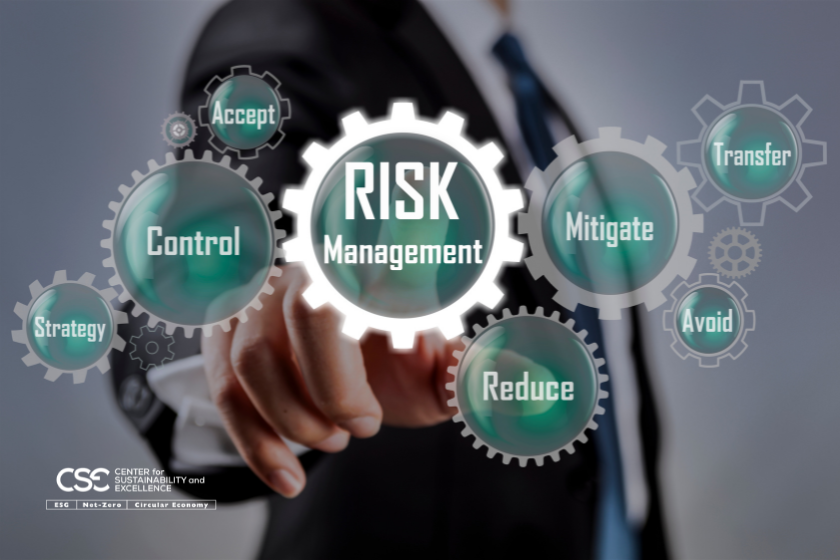How to prepare for ESG reporting in line with new disclosure expectations from the SEC and Canadian government
Accelerating ESG trends of climate metrics increases pressure on companies to plan and report accordingly. Learn how to get started developing your ESG strategy and disclosure practices.
By CSE Research Team

Companies acknowledge the importance of a transparent sustainability strategy and honest ESG reporting practices. CSE is committed to helping companies with this mission and guide them towards making a positive impact, notably being a proud supporter of SEC’s 2021 consultation process towards this goal. CSE continues to include updates on upcoming legislation and important sustainability (ESG) developments in its flagship course for C-suite executives, the Certified Sustainability ESG Practitioner Program.
The New Era of Mandatory Climate Disclosure
With its new climate-related disclosure rules in the making, the Securities and Exchange Commission (SEC) is pushing ESG strategy to the top of corporate agendas. Last March, the SEC announced new proposed climate disclosure regulations. These regulations would require public companies to divulge climate-related risks, performance targets and goals, greenhouse gas (GHG) emissions, and how the board and management monitors and evaluates climate-related risks. Canadian companies with reporting requirements in the United States as foreign registrants, would be subject to these new proposed disclosure requirements. Following this, in May the SEC proposed ESG-focused funds and firms disclose further specifics regarding their ESG strategy in materials, such as fund prospectuses and annual reports. Though the rules will not come into effect until the end of this year, the SEC has already begun enforcing action against greenwashing.
Alongside the SEC, the Canadian Federal Government is also making moves towards requiring publicly traded companies to disclose their climate-related risks. This past April, the federal government’s budget allotted for measures aimed at achieving a net-zero economy, including mandatory climate-related reporting requirements. The requirements are based on the Task Force on Climate-related Financial Disclosures framework. They will apply to federally regulated banks and insurers, which the budget noted “play a prominent role in shaping Canada’s economy.” Reporting requirements will be phased in starting in 2024, but will draw on the 2023 financial year. The Canadian Securities Administrators has also proposed climate-related disclosure requirements, which will apply to any publicly listed company in Canada.
Strengthening ESG practices across various industries
Companies in different sectors rely on varying frameworks to report their ESG data, making it challenging for institutional investors to compare companies’ ESG risks and opportunities regularly. This will change in the coming months, as last May, the IFRS Foundation’s International Sustainability Standards Board (ISSB) announced plans to establish a global standard for ESG disclosure by the end of 2022. Though the proposed rules have yet to be adopted, the SEC climate-related disclosure rules outline the potential for an increasing global effect to the economy as a result.
However, it is important to note that ultimately, the reporting requirements will impact most companies whether they have a reporting obligation under one of these regimes or not.
Business leaders in corporate responsibility, sustainability, ESG, communications, marketing, and investors’ relations are registered in the upcoming Digital Certified Sustainability (ESG) Practitioner Program this September, in order to become certified and recognized as Sustainability ESG Practitioners by CSE, CPD and the Chartered Management Institute (CMI).
Integrating Sustainability ESG into the core of your business strategy
The online live sessions focus on executive-level issues as they pertain to the fundamentals of implementing a corporate sustainability ESG strategy based on the methodology developed by CSE. This five-part methodology, put successfully into practice by Fortune 500 firms and other leading companies around the world, includes the following parts: awareness and training; stakeholder mapping and engagement, assessment; goals and strategy; and reporting.
The upcoming digital sustainability ESG programs include US, Sept. 22-23 &26; Canada, Oct. 27-28 & 31; Europe, Nov. 23-24 & 28. Integrating ESG strategy into the core of your business strategy has become key!
For more information, please contact [email protected]
Upcoming Programs: Certified Sustainability (ESG) Practitioner Program, Advanced Edition 2022.

Location: Digital Date: September 22, 23 & 26
Sign Up: Certified Sustainability (ESG) Practitioner Program, Advanced Edition
For more information & discounts contact us at [email protected]
Related Sustainability Articles







